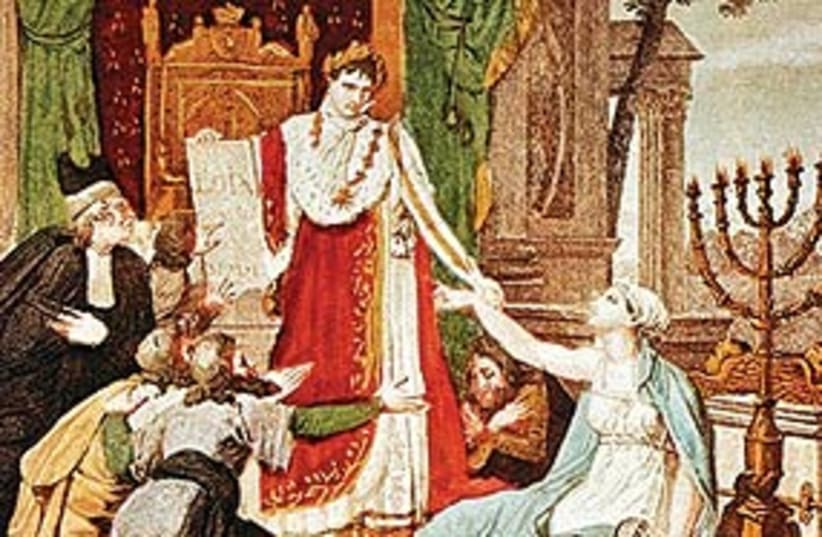On May 21, 1799, following an arrogant two-month effort to conquer the ancient walledcity of Acre, Napoleon Bonaparte’s forces succumbed to the plague, the RoyalNavy, stone walls and the city’s defender, Jezzar Pasha. Conquering Acre hadbeen a vital step in the 30-year-old first consul of France’s plans to spreadhis empire’s influence from Egypt to Syria and eventually through the OttomanEmpire’s heart, Constantinople. The notoriously small French general had facedlittle trouble in his conquests of Egypt was moving quickly northward until hereached the fortified port city of Acre, which would eventually repel him backto France.In 1798, Napoleon had successfully conquered Egypt’s major cities. Intent onexpanding his reach through to Syria, he began marching his armies northward.After a battle in el-Arish and an unchallenged short stopover in Gaza, theFrench forces took the port city of Jaffa where thousands were slaughtered onthe fortress city’s shores. Some historians point to the savage killings thereas a major motivating factor for the impenetrable resistance he later faced inAcre, where tales of the atrocity quickly spread.Quickly moving on from Jaffa, the French forces logged victories in Haifa, Mt.Tavor and the Carmel on their way to the prized and strategically vital portcity of Acre. There, however, aware of his rapid advance and the bodies left inthe wake of previous victories, the city’s Bosnian-born Ottoman ruler anddefender, Jezzar Pasha was ready for the inevitable battle that helped shapeMiddle Eastern history and the fate of at least one fabled European militarylegend.
Reinforced by British forces led by Commodore Sidney Smith who brought with hima former classmate of Napoleon, Antoine DePhelipoux, Jezzar Pasha beganpreparations for the impending French advance on his city. Secondary walls werebuilt behind the city’s main defenses and the Ottoman defenders were told ofthe brutal slaughter met by their counterparts in Jaffa who surrendered toBonaparte’s forces.When Napoleon’s forces finally arrived at the walls of Acre after a slightdelay, they encountered walls much taller than the ladders they naively broughtto climb over them. A naval blockade imposed by Commodore Smith slowed andprevented reinforcements and equipment from reaching Bonaparte’s forces, even seizingNapoleon’s cannons, which would quickly be turned against him. British Navalforces harassed the French on the shore. Faced with 5,000 Ottoman troops, 250artillery cannons and the naval forces at sea, Napoleon was forced to abandonhis plans for a rapid assault and instead began a siege of the well-defendedcity.Finally receiving the artillery reinforcements he was long waiting for, on May8, Napoleon began his largest push to penetrate the city. Two hundred grenadiersfinally breached the high walls of Acre. When they encountered the secondarydefenses that had been built, however, low morale spread through the ranks allthe way up to Bonaparte himself, who at that point must have begun to sense hisimpending failure. The Frenchman would make one final vain push to conquer thestubborn city before lifting his siege and retreating from his grandaspirations to control the entire eastern shore of the Mediterranean.But military forces were not the only tactics employed by Napoleon in hisattempt to control Acre. The city’s ruler and commander, Jezzar Pasha, had atrusted Jewish advisor whom Bonaparte attempted to win over with a surprisingdeclaration. On April 20, 1799, Napoleon Bonaparte had an order penned, declaringthat when he conquered the territory, Jews, who he called the “rightful heirsof Palestine,” would inherit the land.France and his army, Napoleon wrote to the Jews in what many today point to asone of the first iterations of modern Zionism, “offers to you at this verytime, and contrary to all expectations, Israel's patrimony.” Haim Farhi, JezzarPasha’s advisor, was not, however, wooed by the French general’s promises ofJewish sovereignty in the land of Israel.Although it is widely believed that his intentions in penning the declarationwere more influenced by a desire to incite the Jews living under and servingthe Ottomans to betray them, Bonaparte did make other declarations implyingsympathy for the Jewish people’s longing for the land of Israel. Albeit writtenin hindsight and over a year after his defeat in Acre, Napoleon wrote, “If Igoverned a nation of Jews, I should reestablish the Temple of Solomon.” As itis, however, the French general never had a chance to prove whether he was seriousin these declarations or if they were simply tactical statements designed toferment an insurrection by the Jews of Palestine.This Week in History: Napoleon is repelled from Acre
Frenchman’s plans for conquer are foiled by stone walls and British war ships, despite a vain attempt to win over local Jews with an early iteration of Zionism.
